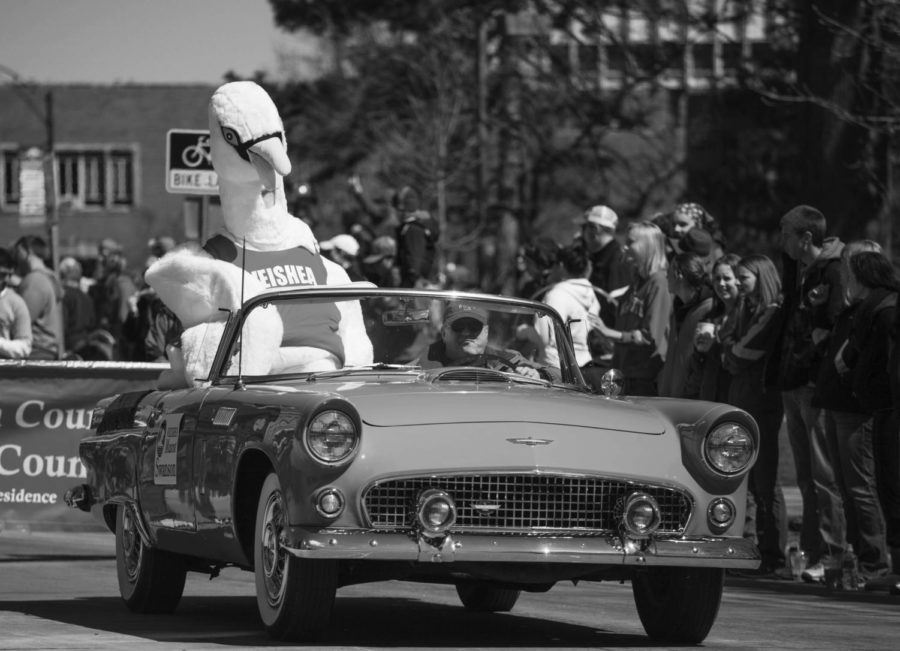Editorial: We killed Veishea
Swanson, the official mascot of Veishea, rides in a car during the parade on April 20, 2013. President Steven Leath discontinued Veishea on Aug. 7, 2014, after the Veishea Task Force submitted a recommendation to end the event earlier in the summer.
August 24, 2014
Let’s go back to 1922. It is May and the first Veishea is in full swing. There is a weekend full of events and activities to celebrate Iowa State’s colleges and their accomplishments. Fast forward to 1988, where the mentality of students on campus became more focused on drinking and less focused on what Veishea was supposed to be — so much so that during the Veishea of ’88, riots broke out.
The riots of 1988 may have been the first, but they were definitely not the last. Riots followed in 1992, 1994 and 2004. In 2005, Veishea was canceled but sprang to life again in 2006. After being generally problem-free for 10 years, we came back in full force, rioting again during the 2014 Veishea. What many students weren’t thinking about was the fact that this would be the last Veishea to ever happen at Iowa State.
We murdered a 92-year tradition.
Many people are upset about President Steven Leath’s final decision to end Veishea, but we really have no one to blame but ourselves when looking at the whole picture. The traditions of Veishea when they first began did not revolve around drinking, but somewhere through the years drinking became more important to students than what Veishea actually represented: a celebration of education.
Drinking and drug use is common among college students, but when did it become our first priority? In recent years, the number of college students that participate in binge drinking has spiked significantly. Binge drinking could lead to violence, including sexual assaults, alcohol overdoses and poor academic performance. Looking back on the 2014 Veishea celebration, it is easy to see how drinking was a big factor in causing the riots.
Four out of five students drink in college, half of which are binge drinkers, according to the National Institute of Alcohol Abuse and Alcoholism. Alcoholism and binge drinking is responsible for 150,000 annual health problems in college students and 1,825 deaths of 18- to 24-year-olds per year.
Students at school are under plenty of stress from professors, friends and family to perform at their full potential. In many cases, students get overloaded with busy schedules and decide to use alcohol as a way of relaxing on the weekends. It seems clear that the social stigma of drinking in college makes you “cool” when in reality it could be causing more problems in our lives than actually helping.
We aren’t preaching to you to tell you to stop drinking. After all, this is college and it is not unreasonable to want to have a drink with some friends after a long day of classes. What we are saying is we should act like the adults we are supposed to be when we do drink.
Students are the bloodline of Veishea; students created the event and when students got drunk and rioted, we poisoned it with alcohol and killed it.
Drinking is not going anywhere — people have been drinking for years. What needs to change is the way people act when they are drinking. Drinking responsibly is part of what is expected of us as adults. Therefore, when Veishea is taken away because students could not behave themselves under the effects of alcohol, we have to take the consequences. This year, the major consequence of drinking was the loss of Veishea.
A reflection on our attitudes of that night and how it felt the next day while walking on campus knowing that our prized tradition was going to be under fire is necessary. We have already laid one tradition to rest this year — we should do our best to keep from drinking any more of Iowa State’s traditions to death.







